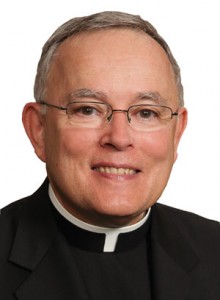“All great tragedies in history arise because somewhere, somehow, man misinterprets himself, takes himself to be what he is not, or not to be what he is.” – Charles Habib Malik, “The Grounds of Peace,” 1953
The name of Charles Habib Malik is largely forgotten today. But in the wake of World War II, he was a voice of sanity and hope for a humanity torn apart by global suffering. Philosopher, diplomat and Harvard professor, Malik co-authored the Universal Declaration of Human Rights, served as president of the U.N. General Assembly and chaired the U.N. Commission on Human Rights. An Arab Christian born in Lebanon, he never sought to hide his faith. Quite the opposite. At the heart of all Malik’s work for peace lay the Gospel. He often reminded people that:
“The Church is the original ground for all hope of peace. Though other grounds may fail us, this ground will never falter, because its Founder has already conquered the world. The family, the school, the economic process, the babblings of men, are subject to the law of decay and death, and to live they must keep rising in [Jesus Christ] who overcame death.”
More than 60 years have passed since Malik wrote those words. And despite his efforts and the work of so many others, the world seems farther from peace today than ever, marred by civil war, economic inequality, ethnic hatred and religious persecution. In the Middle East, Christians have borne the brunt of violence and bigotry in a uniquely ugly way. Many have fled the region just to survive.
But, were he alive today, Malik would probably understand our world very well. Despite all our plaintive calls for justice and peace, we ensure the opposite – we guarantee conflict – by our selfishness and lack of personal engagement with the suffering of others. As Malik warned, modern life relentlessly urges us to focus on ourselves and to misinterpret the profoundly connected creatures we are as human beings. We cling to illusions of personal sovereignty, ambition and comfort when in fact we’re obligated to each other as children loved by the same God.
[hotblock]
Healing this spirit of estrangement requires a conversion of heart in each of us. It requires a turning away from ourselves and toward God and others at the personal level; and a genuine concern for the material and spiritual well-being of the people around us, starting above all with the poor. Otherwise every attempt at building peace will be grounded in sand.
Next week, in his first World Day of Peace message (January 1), Pope Francis writes that:
“Fraternity is an essential human quality, for we are relational beings. A lively awareness of our relatedness helps us to look upon and to treat each person as a true sister or brother; without fraternity it is impossible to build a just society and a solid and lasting peace. We should remember that fraternity is generally first learned in the family, thanks above all to the responsible and complementary roles of each of its members, particularly the father and the mother. The family is the wellspring of all fraternity, and as such it is the foundation and the first pathway to peace, since, by its vocation, it is meant to spread its love to the world around it.”
Of course, a family needs to eat. A family needs shelter and clothing and a reasonable source of income to create a loving and stable home. Without these, the dignity of the family too easily becomes a romantic ideal disconnected from factual conditions. And this explains much of Pope Francis’ recurrent theme of economic justice. Poverty attacks the family, breaks down self-respect, eats away like an acid at the bonds of friendship and sets people against each other in competing for survival. With Charles Malik, Pope Francis and the whole long tradition of Christian social teaching, we need to understand that real peace involves more than the absence of bloodshed, and the worst kind of violence isn’t necessarily physical.
In these days of the Christmas season, as we ready ourselves to begin the new year, this is a good moment to examine our own lives for the material things we need and don’t need. It’s a good moment to commit ourselves to living more modestly and giving ourselves and our resources to others more generously. If we genuinely want peace, the road to that destination begins in our own actions.
PREVIOUS: The birthday of life and an uprising against sorrow
NEXT: National Migration Week and the goal of immigration reform, 2014




Well said Archbishop .